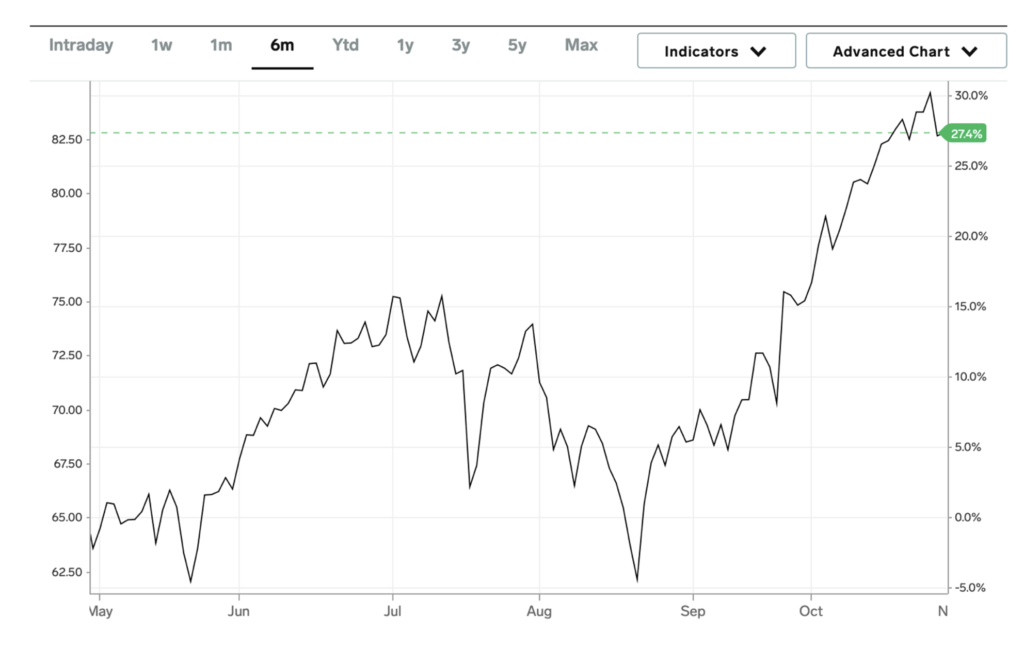If your answer is yes, chances are you’ve probably paid a lot for your fuel. For most people, fuel consumption represents around 3.5% of your weekly household budget – which doesn’t seem like a lot, until it does. If we take a look at oil prices over the last month or so, the price of brent crude has crossed above $86/barrel (at recent highs) which represents the highest levels in 3 years. West Texas Intermediate Oil, on the other hand, is trading at its highest levels since 2014 as it’s added on nearly 20% since September.

The reason for such ridiculous price action really boils down to the basic economic theory of supply vs. demand. If we think about the global economy right now – there is a coal shortage in China and Europe, meaning that those in the Northern Hemisphere heading into winter no longer have access to enough natural gas and rather are using oil for heating. We’ve also seen supply chain disruptions with hurricanes across the Gulf of Mexico and blockages in the Suez Canal (just to name a few!) limiting the supply of oil. Add that into the mix with OPEC (ie. the governing body for oil producers) purposely holding back global supply across a multitude of nations, you’ve got a situation where demand far exceeds supply – meaning prices naturally have to rise. See the chart below for what I mean here:

Here’s the price of oil over the last 6 months or so. This is clearly nothing short of what has been a stellar recovery in prices since the drop in late August / early September.
Also – how can we forget demand? With international travel resuming and freight shipping going bonkers into Christmas, people are demanding more and more oil by the day. So, what does this mean for you as the consumer? Well, it means that you’ll paying more to fill up your car. In what represents around 3.5% (on average) of your household budget right now could climb up to 5% if oil prices continue on the current pathway. In fact, one of the largest investment banks in the world, Goldman Sachs, have recently released a report detailing their expectations for oil to hit at least $90 a barrel by the end of the year. These are crazy levels that we haven’t seen since the GFC.
With the headline inflation figure coming out in October and rising primarily due to what was quoted as a rise in fuel and food prices, I couldn’t help but think what can be done to make some money off of this in the stock market. There’s no good paying more for things if your money isn’t working hard and with the inflation ‘cat’ already out of the bag as rising oil prices pose a scarier issue than just fuel at the bowser. Right now, I see a risk of our economy heading into what we call ‘stagflation’. This is a situation of rising prices (ie. inflation), slowing economic growth and rising unemployment – perfect for capitalising on both the energy sector and defensive stocks which typically rally quite hard during these times. Personally, I think sector ETF’s in the oil space (‘OOO’ as an example) could be a great play, as well as some more defensive stocks like Wesfarmers (WES:ASX), Coles (COL:ASX) or Woolworths (WOW:ASX). If you would like to learn more and see how my trading team shape up recommendations just like this each day, join into our Cashflow On Demand Workshop at the following link: http://bit.ly/aie-mjb
